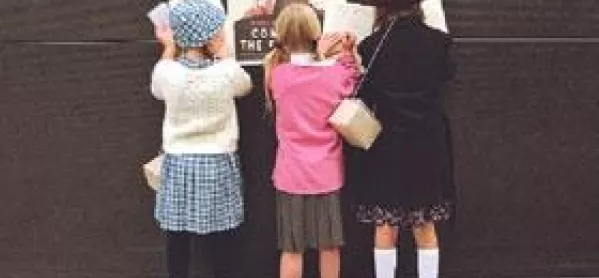Primary report ‘U-turn’ is cosmetic

Changes to the new primary curriculum following critical press coverage of draft plans are cosmetic despite claims that the Government has performed a “U-turn”.
But attempts by politicians to score political points could fritter away the broad support from teachers for the proposals, which will shortly be put forward by Sir Jim Rose’s independent review team.
This week, Ed Balls, the Schools Secretary, cast himself in the role of rescuer of traditional subjects. He announced that the subject area provisionally titled `human, social and environmental understanding’ would be known as `historical, geographical and social understanding’.
But this appears to make no difference to the content, which Sir Jim had already stated in previous reports would contain history and geography.
The TES understands that the title change is one of three made to the subject areas by the review team.
The Historical Association welcomed the renaming of the subject area, but the Geographical Association said the decision was logically incoherent and raised questions about the review’s independence.
Draft programmes of study were leaked to the press last month. These showed that in key stage 2 history, pupils would no longer have to cover either the Victorians or the Second World War, giving teachers more freedom on which two key periods of British history they taught in depth.
In English, communication and languages, the draft plan suggests children should develop an understanding of social and collaborative communication, giving examples including “twitters” and wikis (collections of web pages that can be modified by anyone with access).
This sparked accusations from some newspapers that the Second World War was being abandoned for the networking service Twitter.
The reference to “twitters” is believed to have been deleted before the media fuss began.
But Mr Balls told the Association of Teachers and Lecturers conference this week: “The idea that primary school children will learn how to use Twitter and about social networking instead of the Victorians and the Tudors is just complete nonsense.
“It’s right that independent reviews like Sir Jim’s are carried out at arm’s length from ministers. But in the end, we are accountable. So let me put the record straight now.”
He then emphasised that pupils would be expected to learn a broad chronology of major events in British history and said children should also learn about new technology.
However, this was also stated in the draft report - and Rick Weights, chairman of the primary committee of the Historical Association, said he was happy with the new subject area title. “There has been concern about the marginalisation of history for some time,” he said. “We had grave concerns it would disappear. The name highlights its importance.”
In contrast, David Lambert, chief executive of the Geographical Association, said he had supported the human, social and environmental understanding title. “I’m not sure dropping `environmental’ is progress,” he said. “The Government is responding to press spin on what’s being said and that is a shame.
“With proper support, human, social and environmental understanding - or whatever it will be called - will provide new opportunities for teachers. That still remains. But I’m surprised this cosmetic change has been made.”
David Laws, Liberal Democrat education spokesman, said the process appeared “farcical”.
“Ministers should simply not be accepting or rejecting proposals before the final review has even been published,” he said. “By meddling and making pre-emptive announcements, ministers are undermining confidence in the whole policy-making process.”
Concern from the press and politicians about the survival of traditional subject teaching does not seem to be echoed in primary schools, where cross-curricular teaching has been a cornerstone since 2003.
Sir Jim’s interim report on the primary curriculum review proposed the curriculum was reorganised into six areas of learning rather than subjects, but on its first page it also warned that “high-quality subject teaching must not disappear”.
Areas of learning
Current proposals (liable to change)
- Historical, Geographical and Social Understanding
- Mathematical Understanding
- Understanding English, Communication and Languages
- Understanding the Arts
- Science and Technological Understanding
- Understanding Physical Health and Wellbeing.
Keep reading for just £1 per month
You've reached your limit of free articles this month. Subscribe for £1 per month for three months and get:
- Unlimited access to all Tes magazine content
- Exclusive subscriber-only stories
- Award-winning email newsletters



